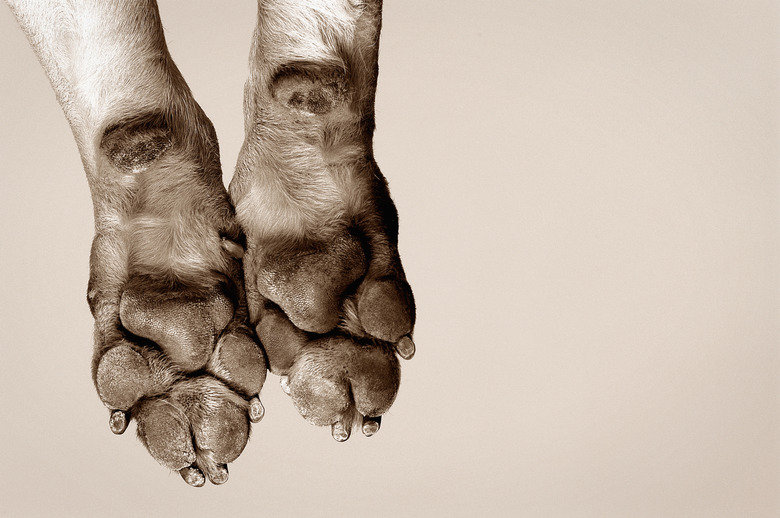Home Remedies For Burns On A Dog's Paws
It's hard to watch your dog suffer with a burned paw, but trips to the vet are costly. Fortunately for both you and your pet, there are many home remedies available to ease your dog's pain and speed up the healing process.
A Note of Caution
A Note of Caution
Serious burns should always be checked out by a licensed veterinarian. Don't attempt any of these remedies on second- or third-degree burns without first consulting your vet. These remedies are intended for treatment of minor first-degree burns only.
Also, in many households Aloe vera is the go-to homeopathic burn remedy. Aloe, however, is listed on the ASPCA's list of plants that are potentially toxic to dogs and cats. Although there is plenty of anecdotal evidence that dogs have consumed aloe without any harmful effects, it's best to be safe and avoid any substances that could possibly make your dog's suffering worse.
Cooling It Down
Cooling It Down
A cold compress, or a soak in cold water, will help to take the sting off of a minor burn. If you use a compress, wrap it in a soft towel that won't leave fibers stuck to the burn, and if soaking, dry the paw with the same type of towel. Apply cold to the burn for about 20 minutes at a time.
Cleaning the Area
Cleaning the Area
Clean the area by flushing it with cool running water, using mild soap to help kill any possible infection. If necessary, gently cut away any fur that might get into the burn and cause irritation. For acid or chemical burns, forgo the soap and apply a paste of baking soda and water to help neutralize the acid or soak it in a vinegar-water solution for alkaline burns.
Ease Pain and Speed Healing
Ease Pain and Speed Healing
Dabbing the burned area with witch hazel, a natural anti-inflammatory agent, will help to ease pain. Apply antibiotic ointment to protect the burn from infection. In a pinch you can apply olive oil to prevent the burn from drying out.
Once the burn is treated, wrap it loosely with burn-safe gauze to protect it and help keep it moist. Reapply the witch hazel and ointment every time you change the bandage, which should be done fairly often.
Always check with your veterinarian before changing your pet's diet, medication, or physical activity routines. This information is not a substitute for a vet's opinion.
